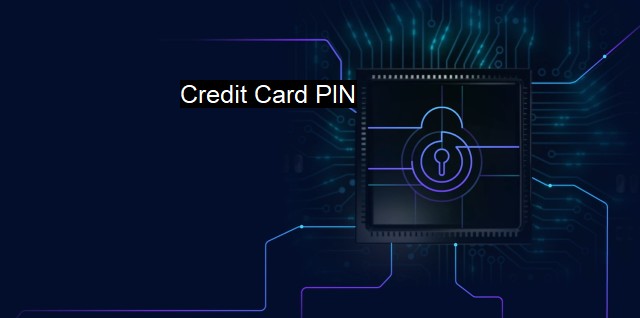What is Credit Card PIN?
Understanding Credit Card PINs: Risks and Rewards
When discussing cybersecurity and antivirus, a vital term to understand is the "Credit Card PIN." PIN, an acronym for Personal Identification Number, is typically a secret numeric password that's embodied in a credit card to validate the identity of the user. The Credit Card PIN is used in ATMs and Point of Sale (POS) terminals in brick-and-mortar shops and is usually made up of four digits.The emergence of credit card PINs has fortuitously enhanced the aspect of banking safety. Before the PIN and chip technology, credit card theft was incredibly simple - crooks only had to acquire a lost or stolen card. Now, with PIN enabled cards, the perpetrators would also require the attached confidential PIN to successfully carry out illegitimate transactions. This makes it more challenging for them, thereby fortifying the credit card security.
The way a credit card PIN functions is relatively simple yet ingenious. The PIN serves an authentication system; it queries the user for a numeric password before granting access to the card’s information and to permit transactions further. Hence, anytime you require performing transactions that are beyond the scope of contactless payments, you're obligated to enter the PIN as proof of your rightful ownership—significantly reducing the success rate of fraud cases.
The bulletproof status of such a layered authentication approach must not be misconstrued. It is still susceptible to numerous hacker techniques. Shoulder surfing — a traditional yet highly effective method, is when crooks casually observe as you input your PIN on a machine. Cybercriminals can engage sophisticated hardware, including skimmers or shimmers, which can capture useful data, including your PIN.
Cybersecurity serves as a potent deterrent in this scenario as it extends to credit card PINs too. A valuable tool in this struggle against illicit access is antivirus software. An antivirus safeguards your confidential data by creating a robust defensive perimeter against malicious software like spyware–which may be utilized by hackers to wedged into your system and illegally acquire sensitive information like credit card pin.
There are practical strategies that credit card users can deploy to improve the security of their credit card PINs. Primarily, the chosen PIN should be unique and not easily guessed - birthdays, addresses, or generic options such as '1234' should be avoided. Many financial institutions in their part deploy measures like two-factor authentication, real-time alerts, biometrics among others.
Remember, your credit card PIN is essential, and even if the entire card details fall into the wrong hands, without the PIN, transactions cannot be made.
It's highly advisable to change your PIN periodically and to never share it – more often than not, breach events occur due to users carelessly sharing their PINs. Fundamentally, don't write your PIN on the credit card or keep it anywhere close by - both constitute a significant categoric security risk. If you happen to lose your card or suspect any suspicious activity, reach out to your bank and have the card deactivated spontaneously.
The role of credit card PINs owing to their verification and authentication impact, in dodging fraudulent transactions, is incontestable. the increasingly evolved nature of hacking methods demonstrates that merely relying on the Credit Card PIN for security is no longer sufficient. Therefore, users should embrace more cybersecurity measures— proactive vigilance must be continuously maintained, and the regular implementation of antivirus software adjustments is a vital step towards ensuring comprehensive online safety.

Credit Card PIN FAQs
What is a credit card PIN?
A credit card PIN (Personal Identification Number) is a unique numeric code that helps in the verification and authorization of electronic transactions made using a credit card.Can cybersecurity threats compromise my credit card PIN?
Yes, cybersecurity threats such as malware or phishing attacks can compromise your credit card PIN. It is important to use anti-virus software and only enter your PIN in secure and trusted environments to minimize the risk of such threats.How can I keep my credit card PIN safe?
To keep your credit card PIN safe, you should never share it with anyone, avoid using obvious numbers like birthdates or phone numbers, memorize the PIN instead of writing it down, only use your card at trusted and secure locations, and immediately report any suspicious activity to your financial institution.What should I do if I forget my credit card PIN?
If you forget your credit card PIN, you can typically reset the PIN by contacting your financial institution or via their online banking portal. You may be required to verify your identity before resetting the PIN.| | A | | | B | | | C | | | D | | | E | | | F | | | G | | | H | | | I | | | J | | | K | | | L | | | M | |
| | N | | | O | | | P | | | Q | | | R | | | S | | | T | | | U | | | V | | | W | | | X | | | Y | | | Z | |
| | 1 | | | 2 | | | 3 | | | 4 | | | 7 | | | 8 | | |||||||